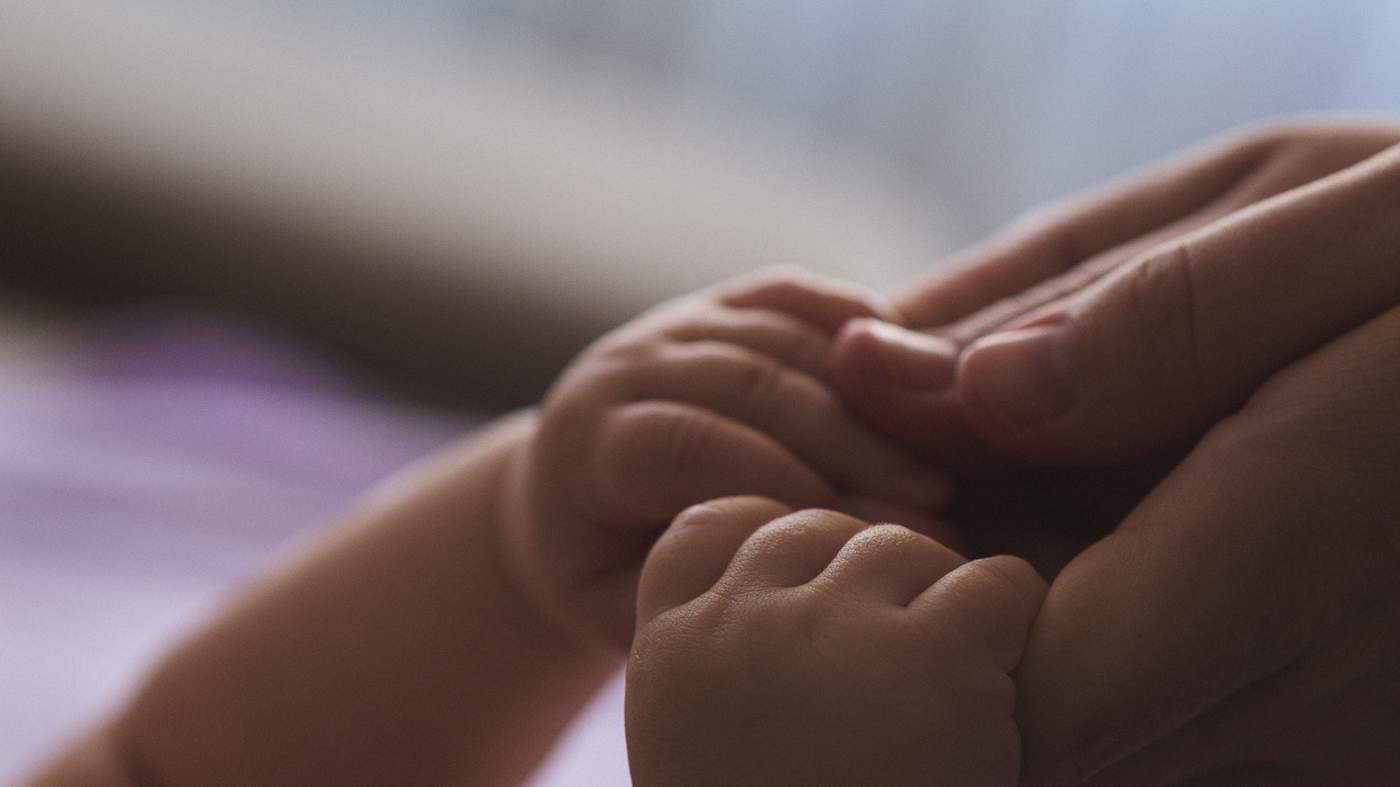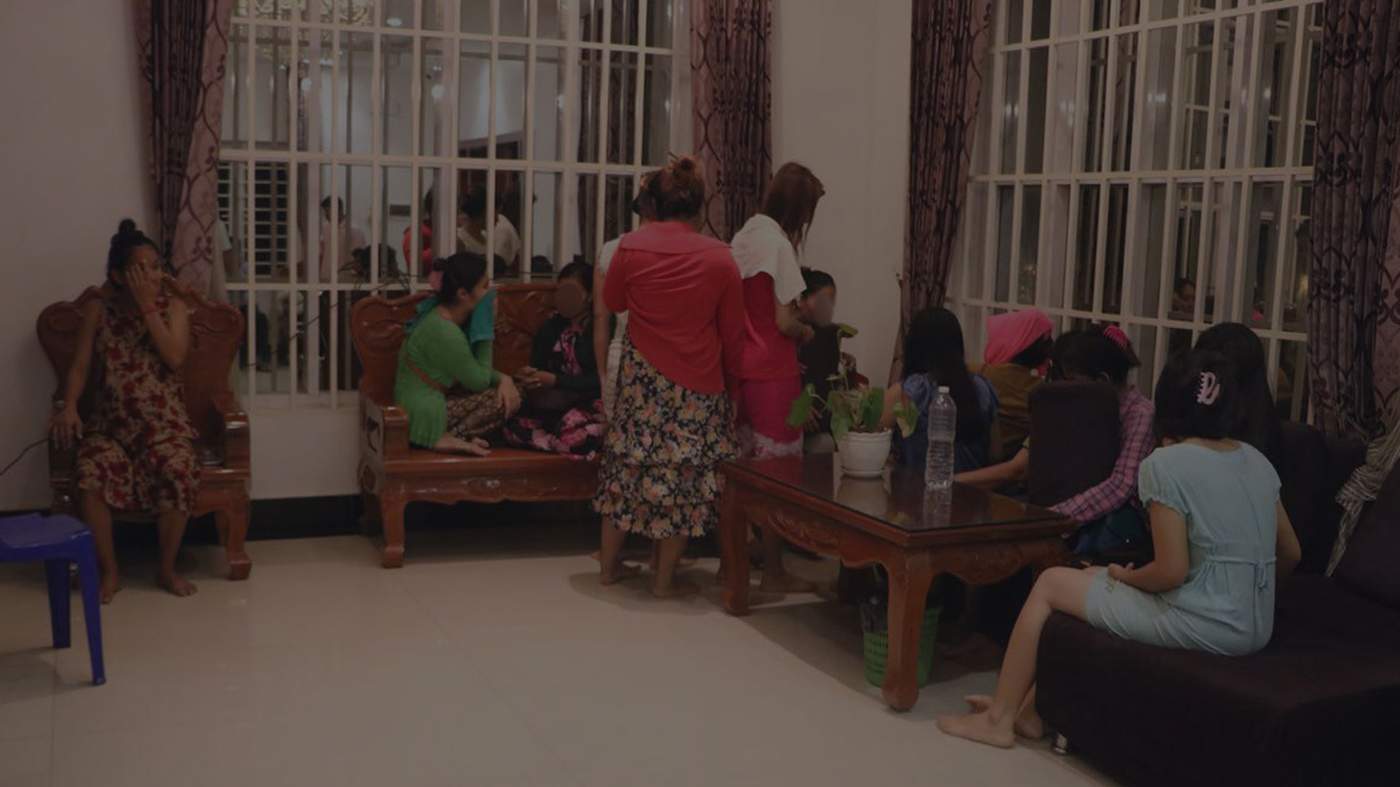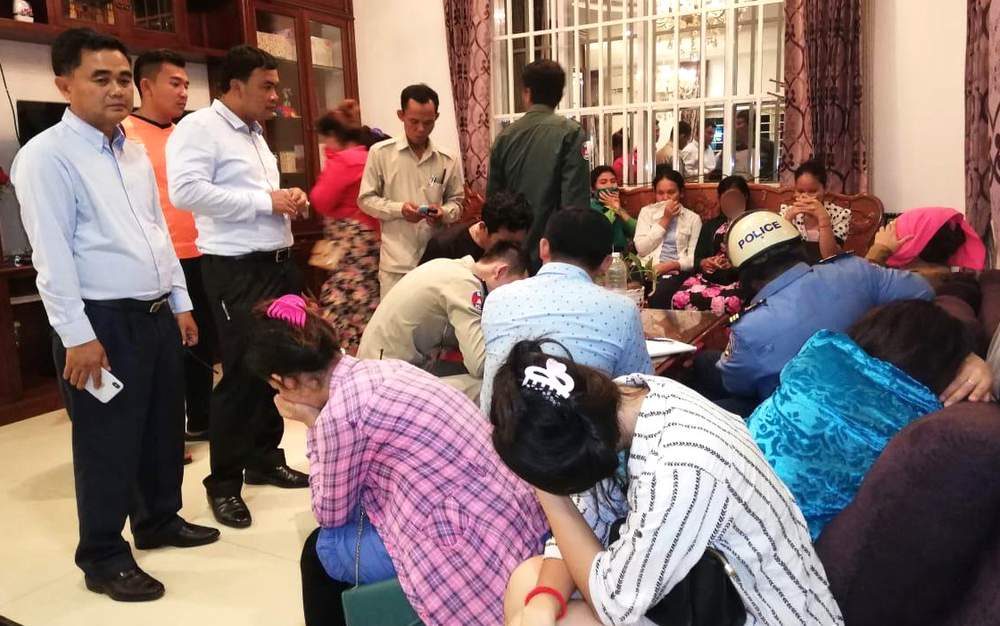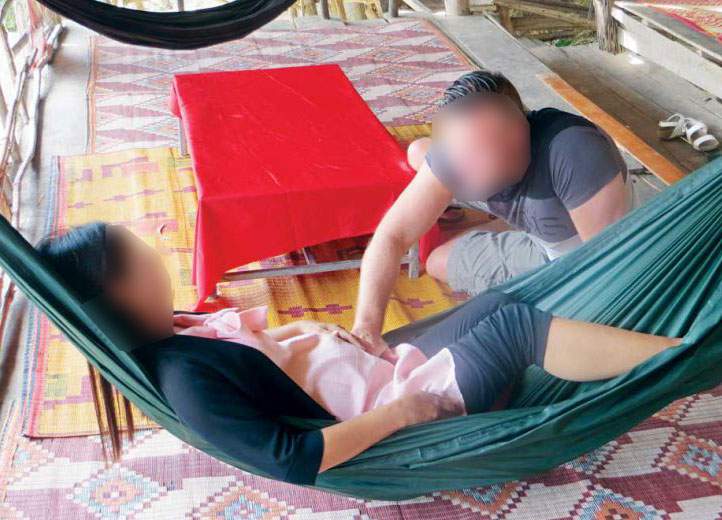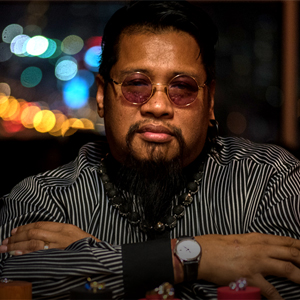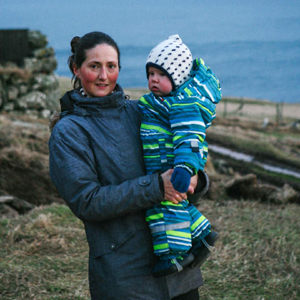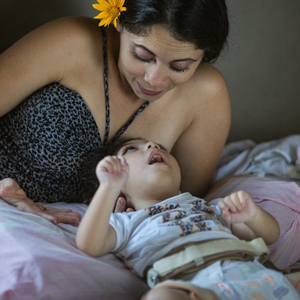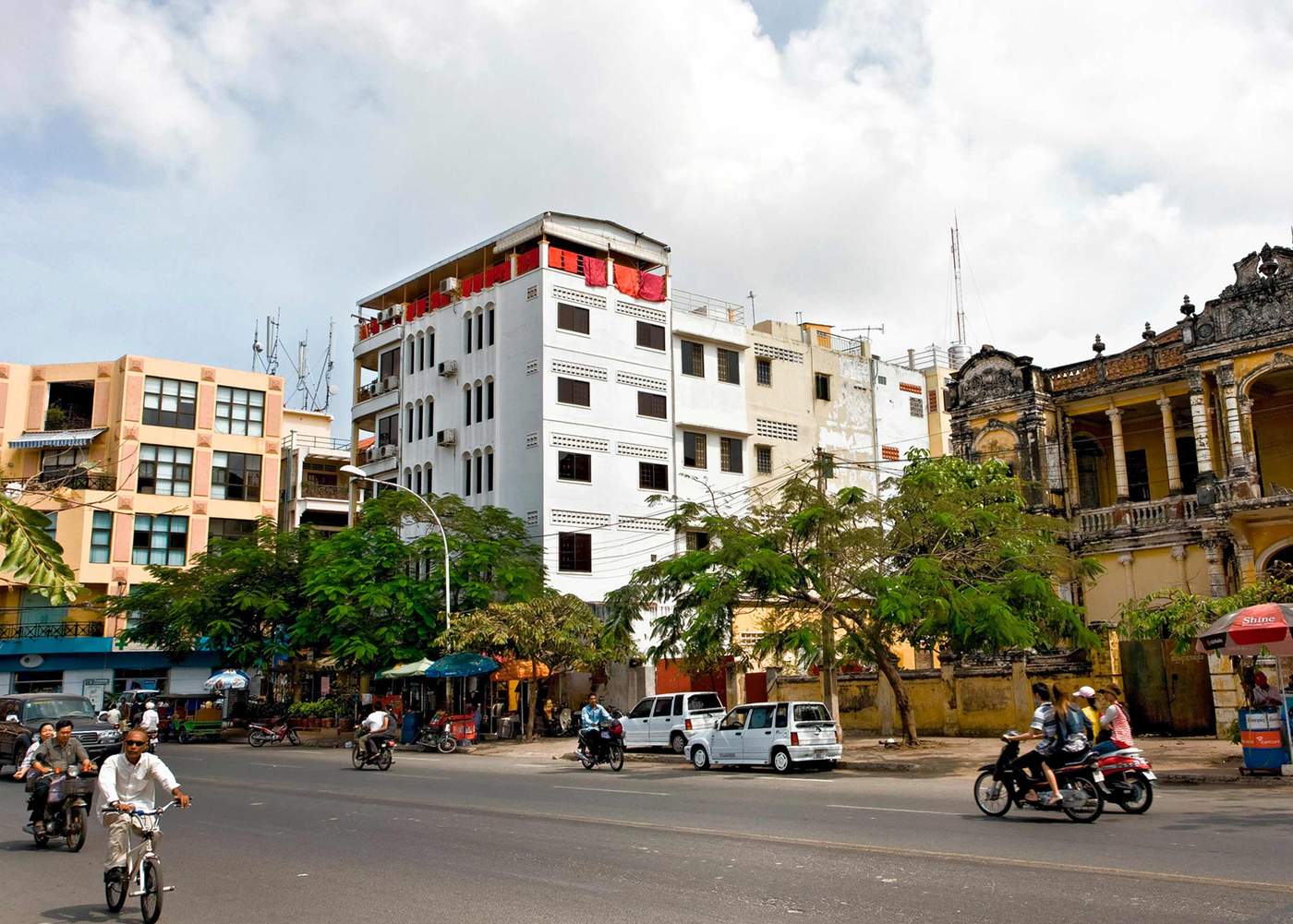

In a village on the Mekong river, many hours from Phnom Penh, a young family has recently been reunited.
Sok and his wife, Neth, live with their two daughters aged six and two, in a traditional Cambodian house on stilts. The floors are made of bamboo and the walls are pieces of corrugated iron. A naked light bulb hangs from the rafters.
This one room is home to 17 people - and it is for this reason that Neth went away to Phnom Penh to become a surrogate mother: to earn enough to build a new house. On Sok’s meagre income as a fisherman in the Mekong, it’s not clear they will ever be able to afford it.
Neth, heavily pregnant, was released at the same time as Thida. She doesn’t know anything about the intended parents of the child she is carrying - most were Chinese, but one couple is known to have been Japanese, and one Angolan. She may find out when she gives birth.
Sok, her husband, was always against the surrogacy plan. When Neth first mentioned it, he told her not to do it. He’d heard from a relative about the ban and thought it was too risky.
“OK, I’ll give up the surrogacy idea - I’ll earn money by being a maid in the city instead,” Neth told him.
But she went to the city and stuck to her original plan. When she called Sok to tell him the embryo had been implanted, he says he was speechless with shock.
Not long afterwards, the villa where the mothers were living was raided and the story was all over the news. Some people in the village recognised Neth and the rumour spread. For this reason, she plans to tell the child how he came into existence. “If I don’t tell him, the neighbours will,” she says.

Like Thida and her family, Sok and Neth now face a grave financial challenge.
Neth received $500 as a down payment when she became a surrogate mother, but much of that appears to have gone already.
I don’t want my children to grow up uneducated like me
She says they have saved $50 to pay for hospital fees, but it won’t be enough.
Sok’s income varies from $5 on a bad day, to $25 on a good one. The last month has not been good, but February is a better month for fishing. In an ideal world he would earn enough to feed the new baby and to put some aside for schooling. “I don’t want my children to grow up uneducated like me,” he says.
Neth is still considering looking for a job in Phnom Penh after the baby arrives, but she would first have to get permission. Currently she has to present herself each month at the provincial police office. Before moving away she would need the authorities to allow her to check in at a different police office near her new address.
She is hoping to breastfeed the baby, in order to save money on formula milk. An NGO called Agape International Missions, which has been helping the surrogate mothers since they were arrested, has given them all a basket of baby clothes, some nappies and two towels. While Thida took the formula milk gladly, and was disappointed there was not more, Neth has refused it.
As for the possibility of contact with the intended parents, Neth flatly rules it out. “I wouldn’t let them meet the baby because they are strangers to me,” she says.
She wouldn’t even consider receiving financial assistance from them.
“I am very scared to receive any money or have anything to do with them,” she says.
Sok knows that money is going to be very tight with an extra mouth to feed, but he won’t let his family see that he is worried.
“Life is about to get harder,” he says.


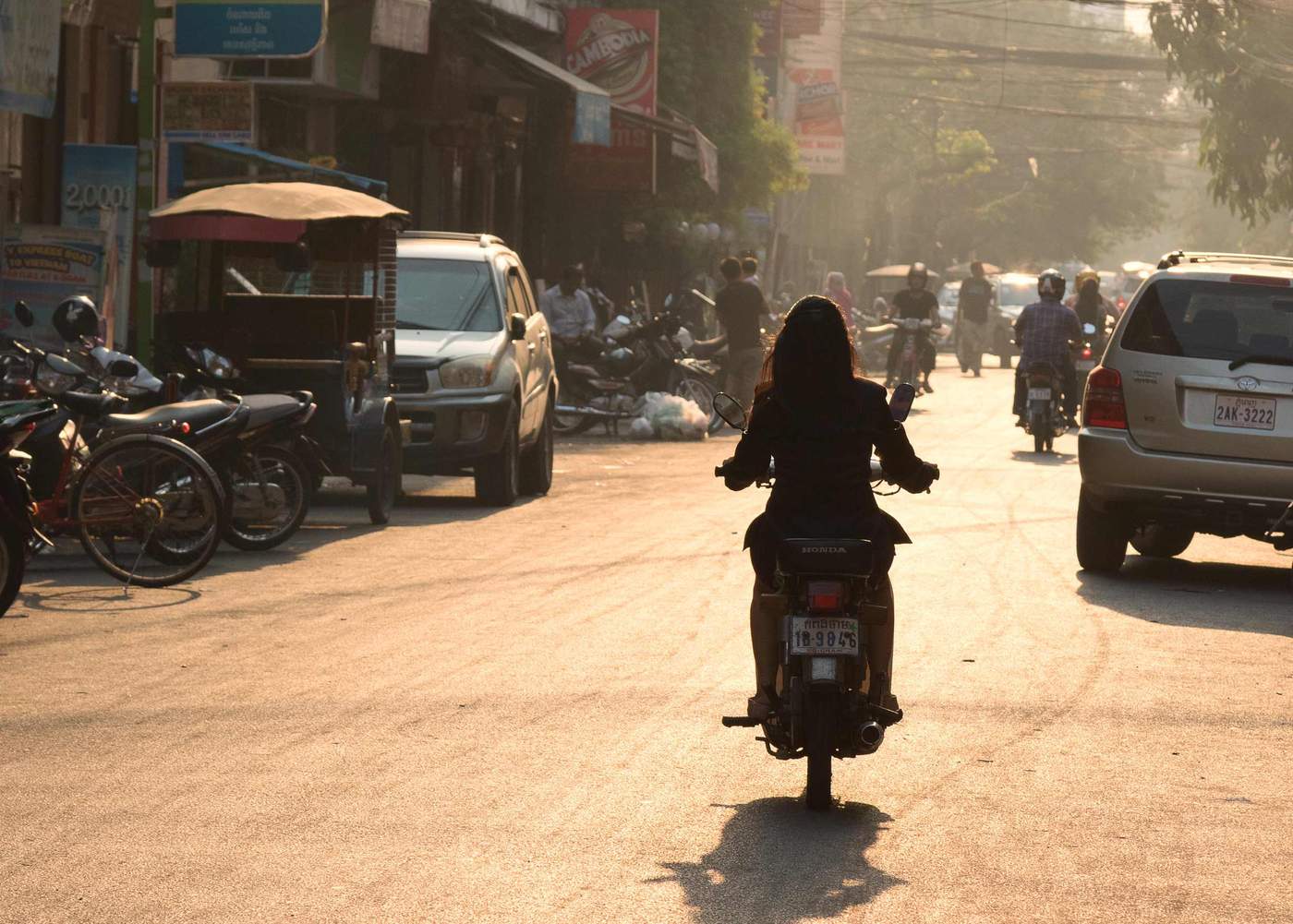

Va-Tei also gave birth to a child last year, but her relationship with the intended parents - a gay couple in the US - was very different.
To help get the baby out of the country, Va-Tei had to get him a passport. In the passport office, she had to hide his face so that officials wouldn’t notice he didn’t have Cambodian features. Then they all flew to Singapore together. The baby was handed over once the plane was airborne.
I really felt so sad that I had to give the baby away
It was clear that the men didn’t trust her, Va-Tei says, describing their journey to the airport in Singapore, before they flew to the US. “That was my last chance to hold the baby. The couple didn’t want me to, so I asked the tuk-tuk driver to translate that they shouldn’t worry. I wasn’t going to take the baby away.”
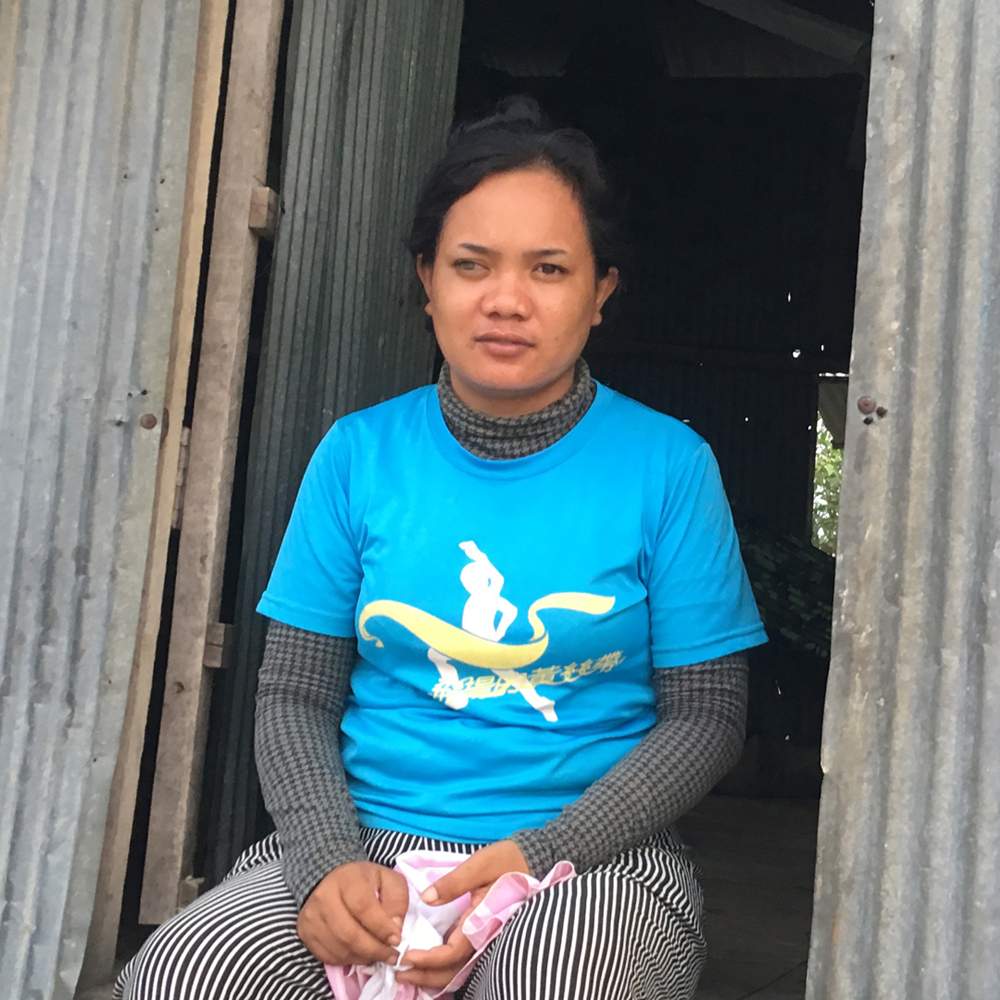
Later, at the airport, she had to walk close to one of the fathers, to give the impression that he was her husband, and that she was seeing him off. Then they disappeared with the child and she flew back to Cambodia alone.
Va-Tei vaguely remembers the baby’s name. “It is quite long and difficult to pronounce. Once I laid awake all night to try and remember the name of the baby. I just remember the sound ‘ni-co-la.’”
Nicholas?
“Yes, Nicholas, the baby boy.”
She left a message with the baby: “I wish that you will have a bright future. I wish you will have a good job.” She thinks that it was in the baby’s interests to leave for the US, as she wouldn’t have been able to afford to feed him properly, but she still has regrets.
“I really felt so sad that I had to give the baby away, I really didn’t want to. The baby was so cute and I had only one photo of him.”
And she made a big mistake: “I gave that photo to the couple, so now I don’t have anything to remember him by.”
Va-Tei still thinks about Nicholas from time to time. “I think about how he is growing up, what he looks like. The parents don’t contact me. Some other surrogate mothers are sent photos of the child growing up. But for me… nothing at all.”
Some names have been changed
